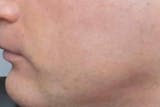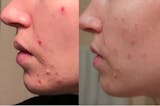The immune system, including the skin, is responsible for inflammation in a flare.
Systemic inflammation can worsen eczema symptoms and is influenced by diet, gut and skin microbiome health, and autoimmune diseases.
Ask internet forums and they will tell you: eczema == immune system dysfunction.
Are they right? Is that where the story ends?
This article will delve into the intricate connection between eczema and the immune system. By gaining a deeper understanding of this relationship, we aim to provide you with valuable insights and practical strategies to manage eczema more effectively.
(And yes, you have probably guessed that the immune system plays a critical role in eczema symptoms, but a smaller story in eczema overall than many people think.)
JUMP TO SECTION:
Immune System Function
The immune system is a complex network of organs, cells, and processes which protect the body from infection and toxins. The skin is a critical part of the immune system and acts as the first line of defense and part of the innate immunity.(KIM 2011)
The immune system helps to protect the body from infection and injury by removing harmful stimuli (triggers) and initiating the healing process. Immune cells release chemical signals, such as cytokines and chemokines, when a part of the body is injured or infected, and this attracts more immune cells to the affected site.(MAR 2018)
The immune cells can then work to remove the harmful stimulus and facilitate the healing process.(PAH 2022)
If the immune system overreacts to harmful substances, such as allergens, this can lead to chronic inflammation and can contribute towards inflammatory diseases, such as eczema. (PAH 2022)
Atopic eczema sufferers have an imbalance of certain immune cells, specifically T cells, which play a crucial role in the immune response. People with allergic eczema have more Th2 cells (MAR 2018), which are responsible for the release of cytokines which instruct immune cells to produce antibodies called immunoglobulin E (IgE) that trigger an allergic response.(ANN 2014) In particular, the cytokines interleukin 4 and 13 (IL-4 and IL-13) are considered central to the pathogenesis of atopic eczema.(CHI 2020)
This results in an overproduction of IgE antibodies, which bind to allergens and trigger the immune system's inflammatory response.(DAV 2011) This leads to itching, redness, and inflammation, which are common symptoms of eczema.
Immune system modulation, how does the immune system calm down.
The Immune System And Eczema
Think of your body as a castle. The skin acts like the walls of the castle. Inside the castle are guards (the immune system). Outside the walls are townspeople (the microbiome) and, over the hills, there are invaders (triggers).
Itching, redness, and inflammation happen when something stirs up the guards of the castle. This can be a justified reaction to something - a bug bite, an infection, or an irritant - something has breached the walls.
How strongly the immune system reacts is a result of:
How inflamed the body is in general
How weak the skin barrier is: more triggers get through
How many triggers are in the environment
How the skin’s microbiome is reacting to the triggers
And finally, is there an inherent problem with the immune system?
The full story of eczema then is threefold: something has come to the castle (trigger), the walls are porous (skin barrier weakness), and the guards are trying to defend the castle (inflammation).
In the case of acute eczema (i.e., a “flare”), how excited the immune system is controls a large part of the strength of the response and the severity of the symptoms.
The skin is not an enemy to the immune system, but a first-line member. Constant bombardment of triggers to a weak skin barrier can drive up inflammation in the entire body and cause additional diseases. (KIM 2011)
While we present the following details on the immune system, please remember that reducing systemic inflammation and triggers, while increasing the strength of the skin barrier, will have a powerful effect on your eczema before, during, and after a flare.
Inflammation is a natural response of the immune system that helps to protect the body from infection and injury by removing harmful stimuli and initiating the healing process.
Immune cells release chemical signals, such as cytokines and chemokines, when a part of the body is injured or infected, and this attracts more immune cells to the affected site.(MAR 2018) The immune cells can then work to remove the harmful stimulus and facilitate the healing process.(PAH 2022)
If the immune system overreacts to injury or infection or reacts to harmful substances, such as allergens, this can lead to chronic inflammation and can contribute towards inflammatory disease, such as eczema.(PAH 2022)
Systemic Inflammation and Its Impact On Eczema
Systemic inflammation refers to a widespread immune response that can affect various tissues and organs throughout the body.
In the case of eczema, systemic inflammation may exacerbate eczema symptoms by promoting the release of inflammatory mediators, such as cytokines.(ZOT 2016) Those cytokines travel throughout the body and increase inflammation, including at areas of eczema flares.
In other words, systemic inflammation causes the castle guards to be on edge and can cause eczema symptoms to be worse than they otherwise would be.
Systemic inflammation can be influenced by various factors, with major factors including:
Health of the gut microbiome
Health of the skin microbiome
Autoimmune diseases
If you are concerned about systemic inflammation, please consult with a physician about whether any of these options might be right for you:
- Lifestyle modifications: Maintaining a healthy diet, exercising regularly, and managing stress can help reduce systemic inflammation.
- Probiotics and prebiotics (either topical or ingested): These supplements can help maintain a healthy gut and skin microbiome, which play a crucial role in modulating inflammation.
- Anti-inflammatory medications: Non-steroidal anti-inflammatory drugs (NSAIDs) or corticosteroids may help reduce inflammation in some cases.
It is important to note that the effectiveness of these interventions may vary among individuals, and a personalized approach may be necessary to address your specific needs.
Skin Barrier Weakness In Immune Response
Skin barrier weakness plays a crucial role in the modulation of immune response and is particularly relevant in the context of eczema.
The skin barrier provides protection from external threats, such as pathogens, chemicals, irritants, and allergens, which might cause an immune response if they were to pass through to the deeper epidermal or dermal layers of the skin.(DermNet - BFAD)
The skin barrier resembles a microscopic, flexible brick wall. Dead skin cells act as bricks and ceramides, along with several other fats, act as mortar to connect those bricks. The strength, smoothness, and suppleness of your skin is largely controlled by the ceramides and fats.
Skin barrier barrier weakness is generally thought to be caused by a lack of long chain ceramides, or a disorganization of those long chain ceramides.
A lack of long chain ceramides in otherwise healthy skin can arise from a genetic defect in the body, poor nutrition, and a number of other factors. Whereas disorganization of the ceramides can be a result of genetic or environmental factors.
In unhealthy or inflamed skin, ceramides are sometimes broken down by the immune reaction or by environmental factors. This helps explain why eczema sometimes “spreads”. The skin near the initial flare loses its long chain ceramides and the new triggers are allowed through in the areas surrounding the initial flare, leading to additional inflammation in the adjacent areas.
The skin contributed to systemic inflammation as well. A flare in one area of the skin will raise overall inflammation levels, which in turn could lead to new flares in another part of the body.
Treatments that focus on improving the skin barrier strength can help alleviate eczema symptoms and prevent relapses.
The Role of Triggers In Immune Response
Our skin is our largest and most active interface with the outside world. Unlike our gut, we cannot always control what comes into contact with our skin.
Some common environmental triggers for eczema flare-ups include:
Metals (e.g., chromium, cobalt, chloride, copper, gold, nickel)
Exposure to smoke, air pollutants, harsh soaps, fabrics such as wool, and some skin care products
Low humidity (dry air) causing skin to become dry and itchy
Heat and high humidity causing sweating and increased itchiness
Allergens such as pollen, dust and mold
Continuing our castle analogy - triggers are like invaders coming to the castle walls. Even if the walls are strong and high, with enough invaders, they will get into the castle. At that point, the guards come to our aid and a flare-up is born!
Learn more about identifying, avoiding, and removing triggers and allergens.
The activity of the immune system results in inflammation. In the skin, this can manifest as eczema. The causes of the inflammation can be considered “triggers” and can come from various aspects of life. The factors affecting the severity of a reaction are the intensity and duration of trigger exposure as well as the sensitivity to a trigger.
Stress can amplify the immune sensitivity, leading to increased severity of eczema symptoms. Dietary and environmental allergies such as pollen, dust and mold can result in immune system reactions in and on the skin, leading to eczema symptoms. Learn more about identifying allergies in the allergy tests page and more about triggers in the triggers page.
The Skin’s Microbiome In Immune Response
The skin microbiome consists of bacteria, viruses, and fungi that together form a complex and dynamic community on the skin's surface. It plays a vital role in fending off disease-causing microorganisms (pathogens), boosting skin barrier protection, and aiding immune defenses.
The skin microbiome works with the immune system to fight infection and modulate inflammation. A healthy skin microbiome will signal to the immune system that things are ok and will lower inflammation.
The opposite is true as well: the skin’s microbiome will alert the immune system to harmful bacteria or viruses, inducing a reaction. An unhealthy microbiome can also induce harmful inflammation.
To maintain a healthy skin microbiome, be mindful of the skin care products and household chemicals that you use.
Immune System Differences
Eczema is not classified as an autoimmune disease as it is not directly a result of a mistargeted immune system, but there can be problems with the immune system that can affect the severity of eczema symptoms.
In the case of atopic dermatitis, there is often an imbalance of certain immune cells, specifically T cells. In particular, the cytokines interleukin 4 and 13 (IL-4 and IL-13) are considered central to the severity of the symptoms.(CHI 2020) This results in an overproduction of IgE antibodies, which bind to allergens and trigger a stronger inflammatory response.(DAV 2011)
Allergic eczema sufferers can often have more Th2 cells.(MAR 2018) Th2 cells are responsible for the release of cytokines which instruct immune cells to produce antibodies called immunoglobulin E (IgE) that trigger an allergic response.(ANN 2014)
There are new drugs and therapies that can modulate the above immune concerns.
Managing Immune Response
Effectively managing the immune response can have a significant impact on controlling eczema symptoms. Here are several areas of immune control that can be addressed to help improve the condition:
Trigger Control
Identifying and avoiding triggers that cause or exacerbate eczema is essential for managing immune response. Common triggers include allergens, irritants, and environmental factors such as extreme temperatures or humidity.
Implementing a thorough skincare routine, using gentle cleansers and moisturizers, and wearing non-irritating clothing can help minimize exposure to these triggers.
Lifestyle Modifications
Adopting a healthy lifestyle can help modulate the immune system and decrease inflammation.
Some foods facilitate the modulation of inflammation. Read about adjusting your diet and nutrition when you have eczema here.
The Th2 response can be mediated by exercise, therefore reducing the sensitivity of the allergic immune response. Sweating can improve skin health by helping to fight infection. Learn more about how to exercise when you have eczema here.
The mind-body connection is powerful: stress can lead to reduced Th1 and increased Th2 immune response which results in increased chance of infection and increased sensitivity to allergens respectively. Learn more about mental health with eczema here.
Probiotics and Prebiotics
Topical or ingested probiotics and prebiotics can promote a healthy gut and skin microbiome, which in turn can help regulate inflammation.
Skin Barrier Strengthening
To improve skin barrier function, choose skincare products that contain long chain ceramides and other barrier-repairing ingredients.
Consistently using these products can help to strengthen the skin barrier and reduce the likelihood of triggers penetrating the skin.
Treating Infections
The presence of damaging pathogens or imbalance of the microbiome can lead to problematic infections. On the skin, this can lead to increased inflammation and damaged skin barrier resulting in irritation and worsening eczema. It’s important to know how to prevent, identify and treat infections to maintain good skin health. Learn more in the infections in eczema here.
Medications
Immune-modulating and suppressing medications can help regulate immune system responses and reduce inflammation in individuals with eczema. Some of these medications include topical corticosteroids, calcineurin inhibitors, and biologic drugs.
Always consult a healthcare professional before starting any new medication to ensure its appropriateness for your specific condition.
Creating a Eczema Treatment Strategy
It is essential to remember that you are not alone in dealing with eczema, and there are numerous approaches to managing this challenging skin condition.
Do not hesitate to consult your doctor or healthcare professional for personalized advice on managing your eczema, as they can help tailor a plan that addresses your unique needs. We hope the above will help you in your discussions.
We understand the difficulties that come with living with eczema, and we are here to help. If you need further assistance or have any questions, please feel free to reach out to us. Together, we can work towards improving your quality of life and gaining control over your eczema.



